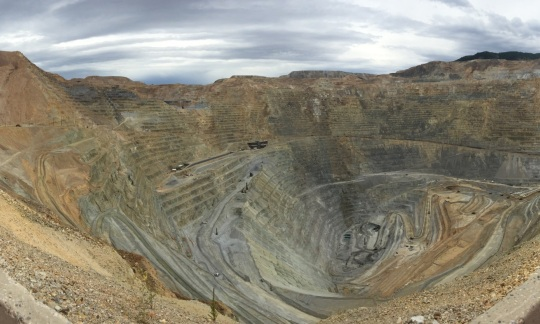
Below is a response from the National Mining Association (NMA) and its president and CEO, Rich Nolan, to the Interagency Working Group’s “Recommendations to Improve Mining on Public Lands.”
It’s clear that when it comes to the global minerals game, the U.S. is critically outmatched – by our geopolitical rivals and allies alike, and the administration acknowledges this. Unfortunately, if the Biden-Harris administration’s stated objective is to secure our nation’s domestic mineral supply chains while supporting responsible mining, the recommendations contained in this report don’t do anything to advance the ball.
In fact, most of the recommendations made by the IWG reveal a fundamental lack of understanding of our industry and the laws that govern it, and will throw insurmountable obstacles in the way of responsible domestic projects and would-be investment.
Problems with the report’s recommendations are many but include the following:
Leasing System. The IWG clearly fails to understand the significant differences between other extractive industries, where information is known about the extent of the reserves to allow prospective lessees to understand the potential rewards prior to bidding on the lease, and hardrock mining, where finding viable mineral deposits can take years and hundreds of millions of dollars to find a mineral deposit that can be produced economically.
Royalties. Industry has long said it is open to compromise on a reasonable prospective net royalty. But the IWG’s recommendation to impose a royalty of up to 8% is not only outsized but, for existing operations, a new royalty that was never accounted for in the mine plan of operation would erase profitability, potentially leading to an early mine closure and constitutional takings liability for the federal government.
Dirt Tax. There is a large amount of material moved on a mine site that is of no value to get to a tiny fraction of materials that are of potential value; applying a tax to material that has no value simply because it has been displaced could carry enormous costs and is nonsensical. Over the last decade, there have been executive and legislative proposals to impose a new tax or fee on the tons of materials displaced by hardrock mining operations. The proposals have not limited this dirt tax to material displaced at mining operations on federal lands and would be applicable to operations on public, state or private lands. None of the proposals have explained how this tax would work on the ground or if they would be repeatedly imposed every time material is moved around a site for a variety of purposes, including reclamation efforts.
Permitting Reforms. The IWG’s recommendations on permitting represent a missed opportunity for the administration to act aggressively to address the severity of the permitting problem while maintaining our world class environmental and safety standards. Separate from the work in the IWG, Congress specifically directed the administration in Section 40206 of the Infrastructure Investment and Jobs Act, to implement specific permitting improvements and to report to Congress (by Nov. 15, 2022) on further recommended improvements. Department of Interior (DOI) and USDA ignored this statutory requirement. The IWG report provides no definitive direction or answer on when these already enacted permitting reforms need to be implemented nor does it address how the National Environmental Policy Act permitting improvements included in the Fiscal Responsibility Act will contribute to permitting improvements.
Source: National Mining Association
